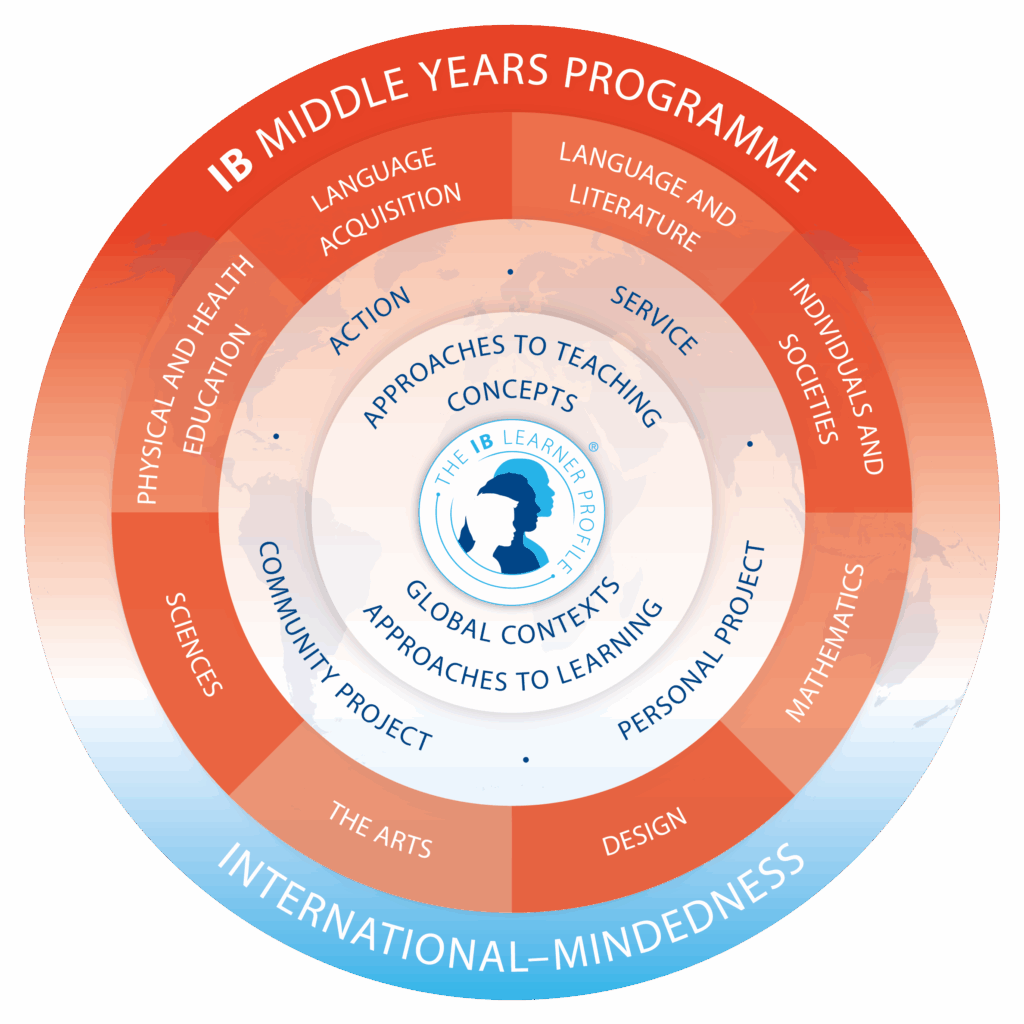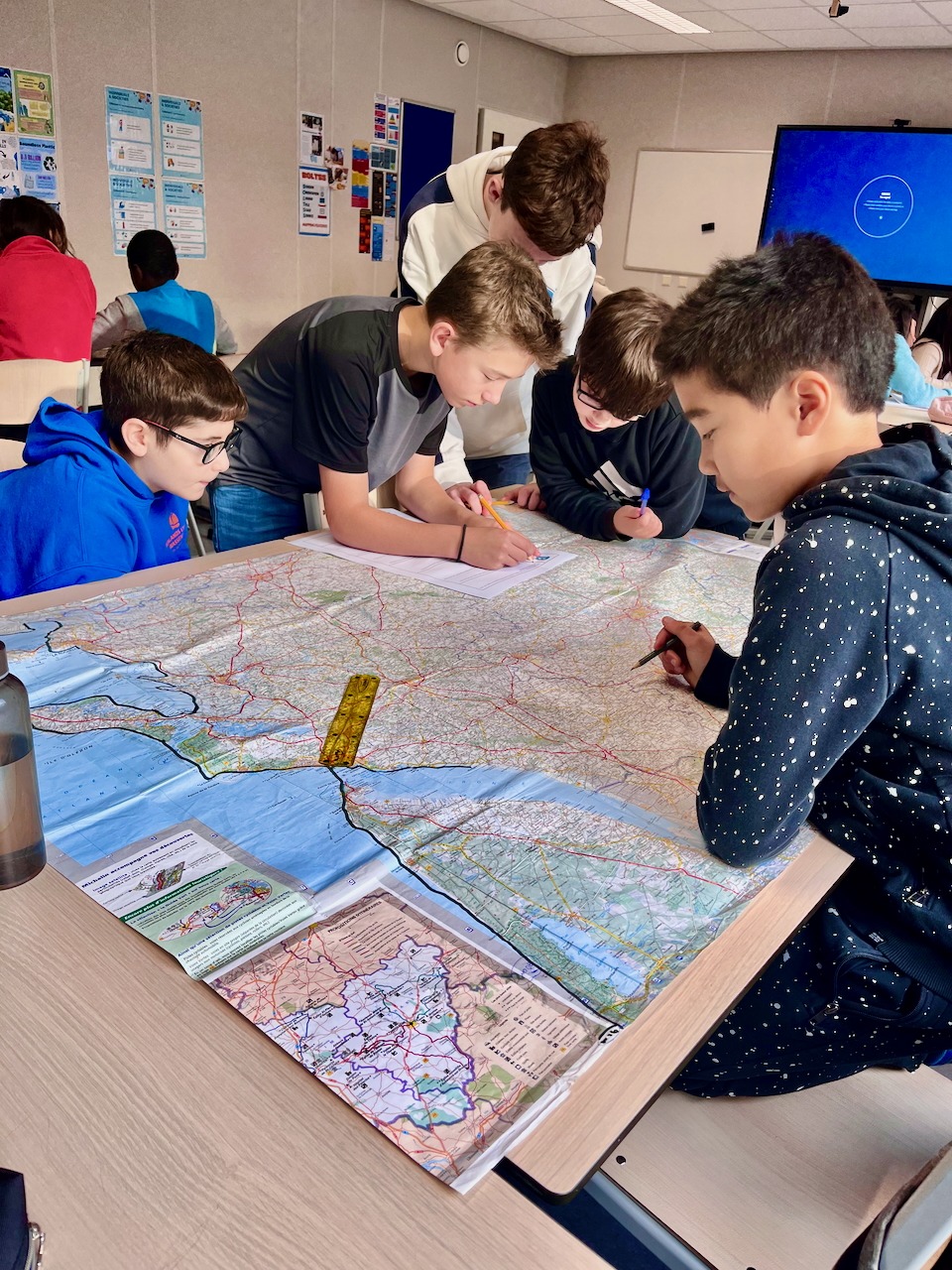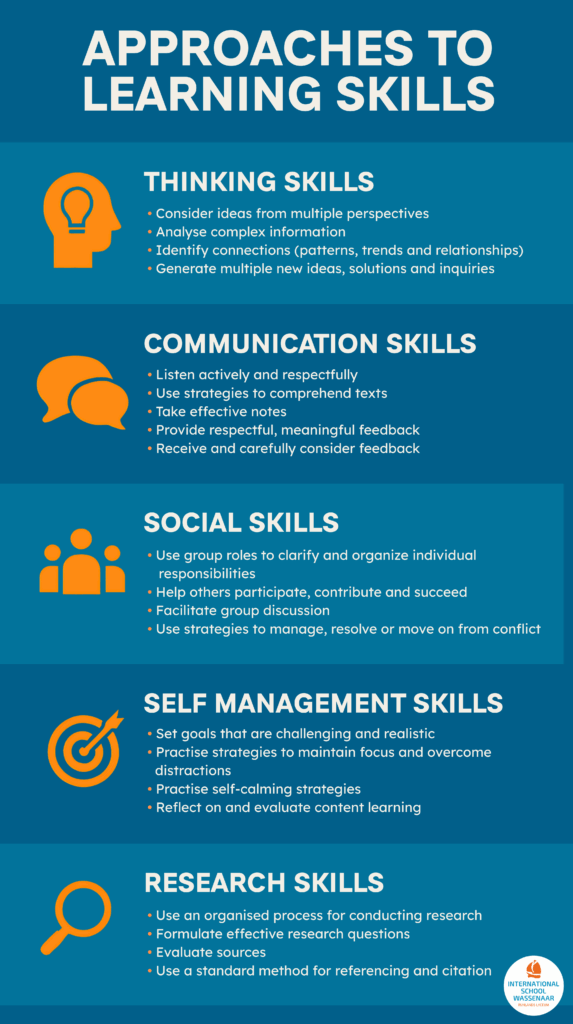What is the MYP?
This video, created by the IB, explores the key characteristics of the MYP.
Students at the centre
The MYP model places students at the centre of learning and is guided by the values of the IB Learner Profile. Learning takes place across eight subject areas—language and literature, language acquisition, individuals and societies, sciences, mathematics, arts, physical and health education, and design. These subjects are taught through key concepts, global contexts, and approaches to learning skills, which help students make connections between different disciplines and understand the relevance of their studies to the wider world. In this way, the MYP provides a balanced and challenging framework that encourages inquiry, creativity, reflection, and international-mindedness.

Inquirers and Collaborators
Inquiry learning is at the heart of the MYP. Students work with their peers to ask questions, share perspectives, and build understanding together. Through inquiry, discussion, and group tasks, they learn not only from their teachers but also from one another. This approach helps them develop communication, teamwork, and critical thinking skills, while deepening their knowledge through shared exploration.

Concept Driven Learning
Learning is designed around powerful concepts—broad, organising ideas that help students make meaningful connections within and across subject areas. Concepts go beyond facts and skills: they enable learners to engage with complex ideas, think critically, and apply their understanding in new contexts. By focusing on concepts, we nurture higher-order thinking, foster multiple perspectives, and give coherence to the curriculum. This approach not only deepens disciplinary understanding but also equips students with the tools to transfer their learning across cultures, disciplines and real-world situations—developing independent thinkers prepared to navigate an interconnected world.

A focus on skills

Approaches to Learning (ATL) are a core element of an IB education. They provide a common framework that helps students develop essential skills consistently across subjects, year levels, and IB programmes. In the MYP, ATL skills are highly valued because they support students in becoming independent, reflective, and effective learners.
There are five ATL skill categories, shared across all IB programmes. These skills—like concepts—go beyond individual subjects and can be taught from multiple perspectives. When taught well, they equip students with strategies for learning that remain useful throughout their lives.
Lessons delivered in a global context
Global Contexts are a unique feature of the MYP that help students connect their learning to the wider world. Each unit of study is explored through one of six contexts—such as identities and relationships, fairness and development, or globalisation and sustainability—which provide a meaningful lens for inquiry. By framing learning in this way, students see how classroom knowledge relates to real-life issues, cultures, and experiences. This not only deepens understanding but also encourages international-mindedness and helps students apply what they learn to new and authentic situations.

